Interview with Niels Tuning a LHCb Run Coordinator
Physics Forums is pleased to introduce Niels Tuning. He’s a physicist working as the Run Coordinator for the LHCb experiment at CERN. Apart from the questions below you can learn more about him at his website. Niels Tuning also has an active Twitter account here.
Table of Contents
 Please give us a bit of background on your life, education and professional experience.
Please give us a bit of background on your life, education and professional experience.
Already as a child I was fascinated by the big questions; what is smaller than the smallest particle? How large is the Universe? That is why I enrolled at the University of Amsterdam in 1991 to study theoretical physics. I continued with my PhD on the proton structure at the
HERA accelerator in Hamburg, Germany. I was very lucky with my excellent supervisor (prof. Paul Kooijman), and the timing of my PhD, which allowed me to make the legacy measurement of the proton structure in 2001.
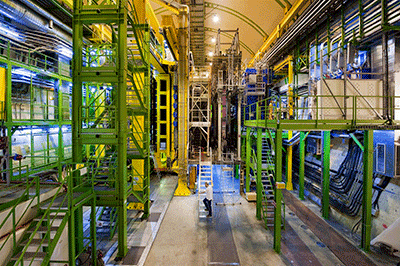
LHCb Detector
Which experiment do you work on and what are your tasks there?
Currently I work on the LHCb experiment at CERN. The LHCb experiment is one of the four large experiments at the LHC collider in Geneva. My main responsibility is the coordination of the operations of the experiment. I make sure that the control room is manned by two shifters around the clock. If there are malfunctioning components in the detector, I ask the experts what the severity of these problems are, and arrange emergency access to the detector for repairs.
What does LHCb plan in the future in terms of upgrades and analysis etc?
2018 is the last year of operations of the “first” version of the LHCb detector. Many colleagues are working hard to prepare the second, upgraded LHCb detector. All the electronics will be replaced, and about half of the particle detectors will be exchanged. The installation of the new components will start in 2019, to be ready for the next run of collisions in 2021.
Have you physically worked on the detector hardware of your current experiment?
Between 2004 and 2009 I helped with the construction and installation of a part of the current LHCb detector, the so-called Outer Tracker, which is a gas-filled detector that measures the trajectory of charged particles. Since 2012 I am the project leader of this detector, and I also perform repairs when needed, which is luckily not so frequent, perhaps three times per year.
Which future measurement are you looking forward to the most?
These are particularly exciting times for the LHCb experiment. There are a number of existing measurements from LHCb which seem to show “tensions” as we call them with our current understanding of the subatomic world, as described by the Standard Model. These measurements involve difference between electrons, and their heavier sister particles, the muon and tau particles. I can’t wait to see updates of these measurements!
If you had to guess: Where (if at all) do we find new physics first?
The measurements that I mentioned above seem all to be consistent with the existence of a new particle, a so-called Leptoquark. These are particles that can simultaneously couple to an electron and a quark. They have never been seen, and in fact, this is not possible in the current Standard Model. If I had to bet on new particles, this is where I would put my money! These Leptoquarks could possibly also open new doors towards better understanding of why there are three generations of elementary particles, only differing by their mass.
How do you see the prospects for proposed accelerators like the International Linear Collider or the Future Circular Collider?
It is unthinkable that mankind would stop researching the basic building blocks of all that is around us! Personally I would favour the FCC over the ILC. A first version of the FCC would host an electron-positron accelerator (FCCee) with more discovery potential than the ILC. At the same time, the FCCee is affordable, as all technology exists. Of course the FCC proton collider is challenging. But on a world-scale, funds could be available if spread over time. Bridges, structures, space-ships, all have a finitie life-span, but the knowledge that will be acquired with science experiments will prevail until infinity
You work in huge collaborations. What is the best part about it – and what is the worst?
The best part to work in large collaborations is the interaction with colleagues from all over the world, all with different background, but with the same fascination for fundamental science! The challenging part of large collaboration is that we should ensure that the work of the young colleagues is appreciated. It is remarkable that in the large LHCb experiment even young undergraduate students can contribute with original work. I think this is due to the enormous variety in research that is possible in LHCb: there are hundreds of interesting particle decays that all deserve to be studied.
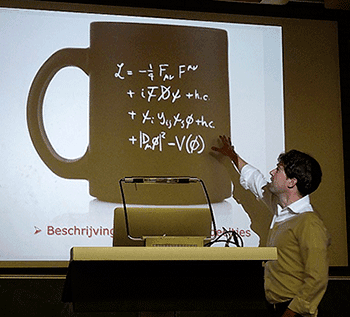
Particle physics is a large field. How much do you follow results outside your areas of expertise?
My main source of information are my colleagues: the coffee table is a great place to hear the latest news, especially at my home institute Nikhef, where many different particle and astroparticle experiments are represented. Also Twitter is a great source of the latest news.
Where do you see issues with the particle physics community and how could it improve?
Both within our community, and outside our community, I feel that we fail to inspire our audience. Our expert presentations at conferences can be made more accessible to colleagues who have a slightly differente expertise. And towards the general public we have to improve our efforts to explain and justify our work.
Outside your current research, what developments are you watching and why?
Probably I lack expertise for a proper judgement, but I have been always skeptical about progress and promises in fusion research and quantum computing. These areas have not managed to catch my fascination. Instead, I feel that the advances in biology are amazing. The understanding of human ageing is intriguing, together with the societal consequences.
What direction should experimental particle physics go?
A world-wide effort for the FCC (in Europe or China) is the way forward in the next decades. Hopefuly technological advances in acceleration (wake fields), magnets (superconductivity) or muon colliders, can bring another boost to our field in the long term!
What is your view on the absence to date of encouraging LHC results for supersymmetry?
I believe the main issue of the particle physics community is that we have promised too many discoveries in the past, like supersymmetry. Now that supersymmetry seems not an easy catch, it might seem to the outside that we have to change our story. Instead, there are so many good reasons to study the fundamental world around us!
What does the future hold for you professionally?
I strongly believe in the physics case of the LHCb experiment. By the precision measurements we are doing, we can find new particles of huge masses, even up to 20 TeV, which are out of reach of the other experiments. Practically all our measurements suffer from too low statistics, so it is obvious that we should boost the number of collisions we can record. Therefore, I also will help to push for a future, third version of the LHCb experiment for the year 2030!
Thanks again Niels Tuning for your time in answering these questions, providing lots of Insight! Thanks to member @mfb for help with developing the questions.
Read the next interview with astrophysicist Adam Becker
I have a BS in Information Sciences from UW-Milwaukee. I’ve helped manage Physics Forums for over 22 years. I enjoy learning and discussing new scientific developments. STEM communication and policy are big interests as well. Currently a Sr. SEO Specialist at Shopify and writer at importsem.com

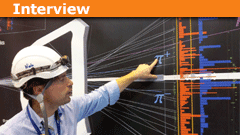
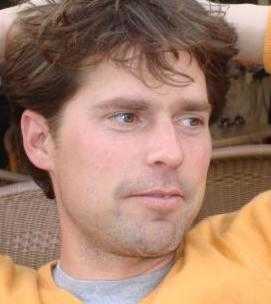 Please give us a bit of background on your life, education and professional experience.
Please give us a bit of background on your life, education and professional experience.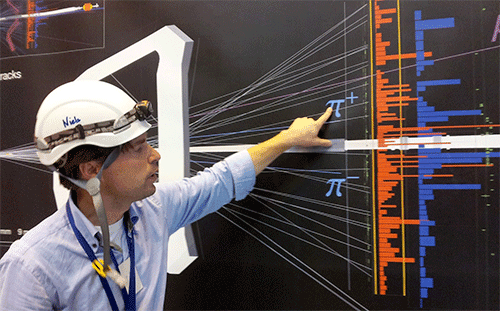
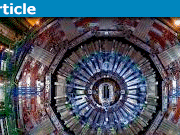

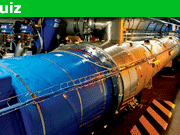
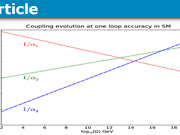
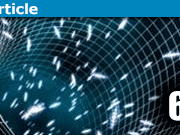
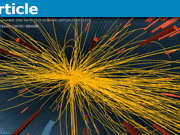
I don't know how I missed this interview @Greg Bernhardt. But I'm glad I found it now. Thanks a lot Greg for all your efforts here. Outstanding work. :bow:
Great article. Especially the part of the leptoquarks. I'm really interested in that one.
Thanks for another great interview.